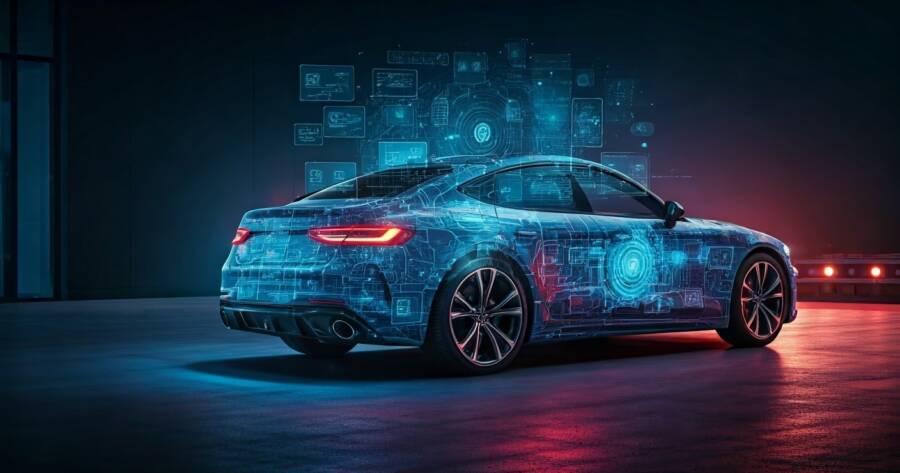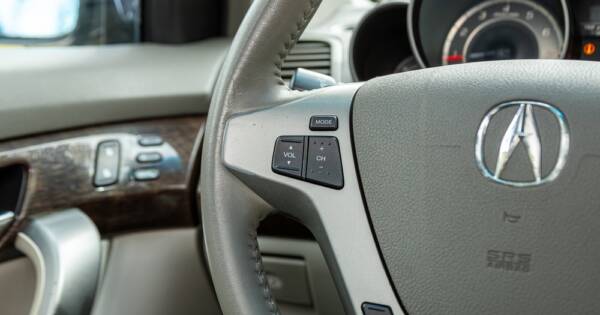As cars become more connected, they also become more vulnerable to cyber threats. With advancements in automotive technology, vehicles now rely on software for everything from engine performance to navigation and entertainment. This connectivity, however, opens the door to potential cyber attacks. Here’s how you can keep your vehicle safe and secure in the digital age.
Understanding the Risks of Connected Vehicles
Modern vehicles are essentially moving computers. They use software to control numerous systems, from brakes to steering to even tire pressure monitoring. While these features bring incredible convenience and safety benefits, they also increase a car’s risk of cyber attacks. Hackers may try to access vehicles to disrupt functions, steal data, or even take control remotely.
One of the main entry points for these cyber attacks is the car’s infotainment or navigation system, which connects to the internet and often has access to personal data like contacts, locations, and music preferences. Additionally, many newer vehicles have Wi-Fi hotspots, allowing multiple devices to connect, which could become another vulnerability if not properly protected.
Stay Updated with Software Patches
Car manufacturers release regular software updates to improve performance, add new features, and, importantly, fix security vulnerabilities. Just like smartphones or computers, vehicles with outdated software are more susceptible to cyber threats. Many manufacturers now offer over-the-air (OTA) updates, which automatically download the latest security patches as long as your car is connected to the internet.
To keep your vehicle safe, make sure you enable these updates and install them as soon as they’re available. Some cars require manual updates, so it’s essential to check with your dealership or manufacturer to stay informed. Even if updating software seems inconvenient, it’s a simple step that can prevent cyber attacks.
Limit Connections to Trusted Devices Only
Many people connect their phones and other devices to their car’s Bluetooth or Wi-Fi network. While this can be useful for hands-free calling, navigation, and music streaming, each connected device is a potential entry point for hackers. To minimize risk, limit device connections to only those you absolutely need and trust.
Regularly review the list of connected devices on your car’s system and remove any that are unfamiliar or no longer in use. Avoid connecting devices that aren’t secure or up-to-date, as they could provide a route for cybercriminals. It’s also a good idea to disable Wi-Fi or Bluetooth when you’re not using them, especially if you’re in a public area where hackers might be able to intercept connections.
Be Cautious of Third-Party Apps and Services
Many car manufacturers allow drivers to download third-party apps for navigation, entertainment, or remote control features. While these apps add functionality, they can also be a risk if they aren’t from a trusted source. Some apps might contain malicious code that could allow hackers access to your car’s systems.
Stick to official apps provided by your car manufacturer or apps from verified app stores with solid reputations. Check for app updates often, as developers typically release patches to fix any security flaws. If an app seems suspicious or causes issues, it’s best to delete it immediately to avoid potential vulnerabilities.
Protect Your Key Fob
To keep your key fob safe from hackers, store it in a signal-blocking case, also known as a Faraday pouch. This pouch prevents the fob’s radio signals from being picked up by nearby hackers attempting to intercept them. When at home, avoid leaving your fob close to doors or windows, where thieves could use signal amplifiers to unlock your car.
Additionally, consider turning off your fob’s wireless signal if your car model allows it or regularly changing your fob’s security settings through the car’s user interface. These precautions reduce the risk of unauthorized access to your vehicle.
Monitor for Signs of Suspicious Activity
Just as you would monitor your bank accounts for fraud, keeping an eye on your car’s behavior can help you spot cyber issues early. Watch for signs that something might be wrong, such as unexpected changes in vehicle settings, unusual sounds, or sudden, unexplained alerts on the dashboard. These could indicate that someone has tampered with the car’s systems.
If you notice any irregularities, contact your dealer or car manufacturer right away. Many companies have cybersecurity support to help you investigate potential threats. Additionally, be cautious about sharing too much information online about your vehicle’s connectivity features, as hackers often look for such details to exploit vulnerabilities.
Take Steps to Secure Your Car
In today’s connected world, vehicle cybersecurity is a growing concern. With more cars relying on digital systems and connectivity, it’s essential to stay vigilant against cyber threats.
By keeping your car’s software updated, limiting device connections, using strong passwords, and monitoring for suspicious activity, you can significantly reduce your car’s vulnerability to cyber attacks. As automotive technology evolves, taking these preventive steps can help ensure your car stays safe and secure.




